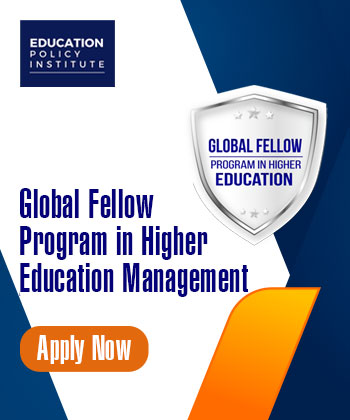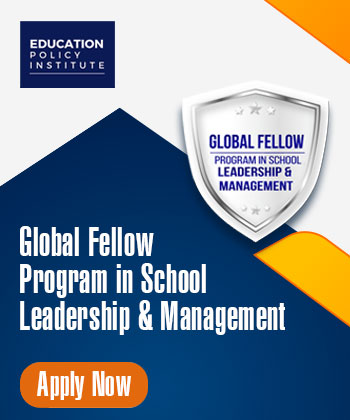Know Everything about STEM Education Trends
August 04, 2023In the last few years, Science, Technology, Engineering and Mathematics (STEM) education has undergone significant transformations. As technology continues to advance and shape the way education trends, lives and function. As a result, the educators have been working to incorporate new ways and teaching values to keep up with these transformations and offer students with the skills they require to succeed in the future.
There are many STEM education trends that educators must have knowledge about. As they are enhancing and evolving their teaching practices. These trends consists of increasing use related to technology, with the latest technological advancements like Artificial Intelligence (AI), Machine Learning (ML), Virtual Reality and Augmented Reality(VR & AR), and various digital online learning platforms being incorporated into classrooms more than ever before. Apart from this, there is huge and tremendous recognition of the essentiality which is related to the teaching skills like computational thinking and problem solving related learning that are very important for success in current world.
There is also a huge focus on social-emotional learning that can help students to enhance their essential competencies like empathy, self-awareness, and social skills. Furthermore one can also expect to observe greater diversity, equity, and inclusion in the trends related to education, with teachers focusing to promote diversity in the classroom as well as incorporating the perspectives from historically marginalized teams.
In this article, let’s explore these top future trends in education and their potential effect on STEM education. By staying informed and adapting to these changes, educators can ensure that they are offering the students with the perfect education and making them to be ready for success in the future.
Artificial Intelligence and Machine Learning
Artificial Intelligence (AI) and Machine Learning (ML) impacting the landscape of STEM education up to great extent. In the coming future, there will be high-level of advancements in this space. Teachers will be increasingly using the AI and ML-powered software to personalize the learning process for each student. Adaptive learning software will use ML algorithms to analyze the student data and adjust the pace and toughness of lessons to meet every student requirement.
Virtual and Augmented Reality
Virtual and Augmented Reality (VR/AR) technology is quickly evolving, and the usage of these technologies in the STEM education is very high. VR/AR is very helpful to make immersive learning experience that ensures the students to interact with complex concepts in a more engaging way. For instance, students can use AR to view and manipulate 3D models of molecules, planets, or machines, while VR can offer simulations of real-world scenarios.
Project-Based Learning
Project-based learning (PBL) is quite popular. It gives the students with hands-on, real-world experiences that ensure that they are learning well and also enhances their critical thinking, problem-solving, and collaboration competencies. Students are needed to work as a team to solve complex problems, design, build projects, as well as showcase their key findings to their peers.
Online Learning
Online learning has risen for several years, and this STEM Education Trends is likely to continue in the future as well. Advances in technology have made it simpler than ever for students to access online programs, study materials and resources. Online learning offers students with flexibility and convenience, giving them a path to learn at their own pace and also from any location. Apart from this, online programs can be more affordable than traditional classroom programs, creating education more accessible to students who might be available to attend a traditional school.
Computational Thinking
Computational thinking is a problem-solving way that utilizes the principles of computer science to analyze and solve complex issues. This approach has become high highly essential in the current digital world, so it was given more emphasis. Students will learn about breaking down the complex issues into smaller once, more manageable ways, and to build algorithms to solve those complex issues.
Gamification
Gamification is the use of gaming elements, like points, badges, and leaderboards, to engage and motivate students. This approach is tremendously increasing the student engagement and motivation in STEM subjects. The usage and application of gamification in STEM education trends is more now when compared to recent times. Teachers can take help form gamification to create the process of learning more fun and interactive, and to also offer students with quick feedback on their progress.
Social Emotional Learning
Social Emotional Learning (SEL) is the process of enhancing the emotional intelligence, self-awareness, and social competencies. This future trend in education has become highly critical in STEM education, as students are required to accelerate their competencies to be successful at the workplace. In the coming years, the focus will be given completely on SEL in STEM education. Teachers will take help from SEL strategies to help students build essential competencies skills like collaboration, empathy, and resilience.
Personalized Learning
Personalized learning is an approach to education that tailors instruction to each student's individual needs and interests. In the mere future one can expect to see more applications of personalized learning in STEM education. Teachers will take help from technology to get useful information on student performance and use those insights to customize each instruction for every student. This approach will be very useful for students to be engaged, inspired and motivated, as they stay interested as well as invested in places that are personally relevant to them.
Diversity, Equity, and Inclusion
Diversity, Equity, and Inclusion (DEI) are essential education trends. In STEM education, these future trends are certainly important, as historically marginalized groups have been underrepresented in STEM fields. Teachers will use DEI ways to enhance the diversity in the classroom, like taking help from diverse materials and incorporating perspectives from different underrepresented groups.
Sustainability Education
Sustainability education is the process of educating students about the essentiality of environmental sustainability and the actions they can take to promote it. Teachers will take help from these to plan the lessons and projects that focus on sustainability topics accordingly, such as renewable energy, conservation, and waste reduction.
To Summarize
The future of STEM education is bright, with exciting advancements in technology and teaching approaches. In the future one can expect to observe great transitions that are going to take place in the education sector due to the trends like AI and ML, VR/AR, PBL, online learning, computational thinking, gamification, SEL, personalized learning, DEI, and sustainability education. By staying ahead and knowledgeable about to these trends, educators can ensure that they are offering the students with the best possible future education.




